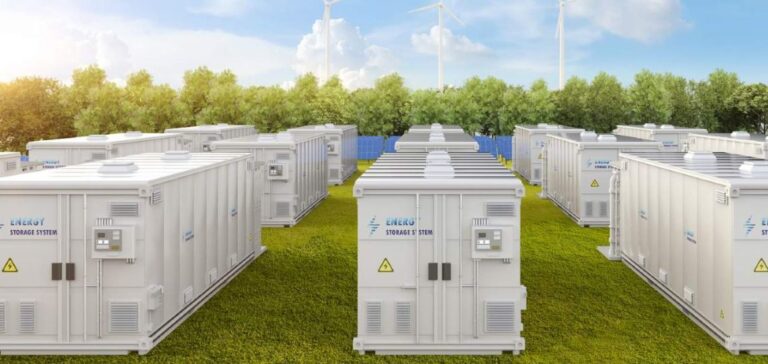The Almholme Energy Hub, located in the Doncaster region, has received approval from the local council for its massive energy storage project. With a capacity of 1025 MW/2050 MWh, combined with 49.9 MW of solar power, it is the second-largest project of its kind to gain official validation in the United Kingdom.
The planned technology will store surplus electricity generated during peaks in renewable energy production, addressing a critical challenge for the UK’s evolving energy market. By stabilizing supply across the national grid, the project meets the dual need of enhancing energy security and optimizing the utilization of existing renewable energy sources. According to estimates, the site’s storage capacity could power over 37,000 local homes for an entire week, while its solar production could supply electricity to more than 15,000 homes annually.
A Strategic Project for the Energy Sector
The context of this project aligns with the UK’s efforts to diversify its energy solutions amidst increasing constraints in international markets. By strengthening its storage capacity, the country aims to better manage grid fluctuations and reduce dependency on energy imports.
Large-scale energy storage has become a major political and economic priority to anticipate demand variations and prevent costly supply disruptions. The technologies associated with this project position the UK at the forefront of operational solutions to ensure a stable electricity grid.
A Hybrid Model Combining Storage and Production
With 49.9 MW of integrated solar power, the Almholme Energy Hub represents a hybrid production and storage model that stands as an efficient solution within the current energy transition. This type of infrastructure meets the specific requirements of market players while minimizing losses associated with overproduction.
The initiative is also seen as an opportunity to consolidate the resilience of the UK’s grid. Through projects like this, the UK continues to position itself among European leaders in implementing innovative energy solutions, with promising prospects for public and private partnerships.
A Project with Strong Local Involvement
In addition to its national ambitions, the project includes a local component. A community fund will be established to support local initiatives throughout the lifespan of the project, reflecting the trend for large energy infrastructures to also invest in regional economies.
This project marks an important turning point for the UK energy industry, not only in terms of technical capacities but also in its ability to unite political, economic, and local interests around a strategic infrastructure.





















